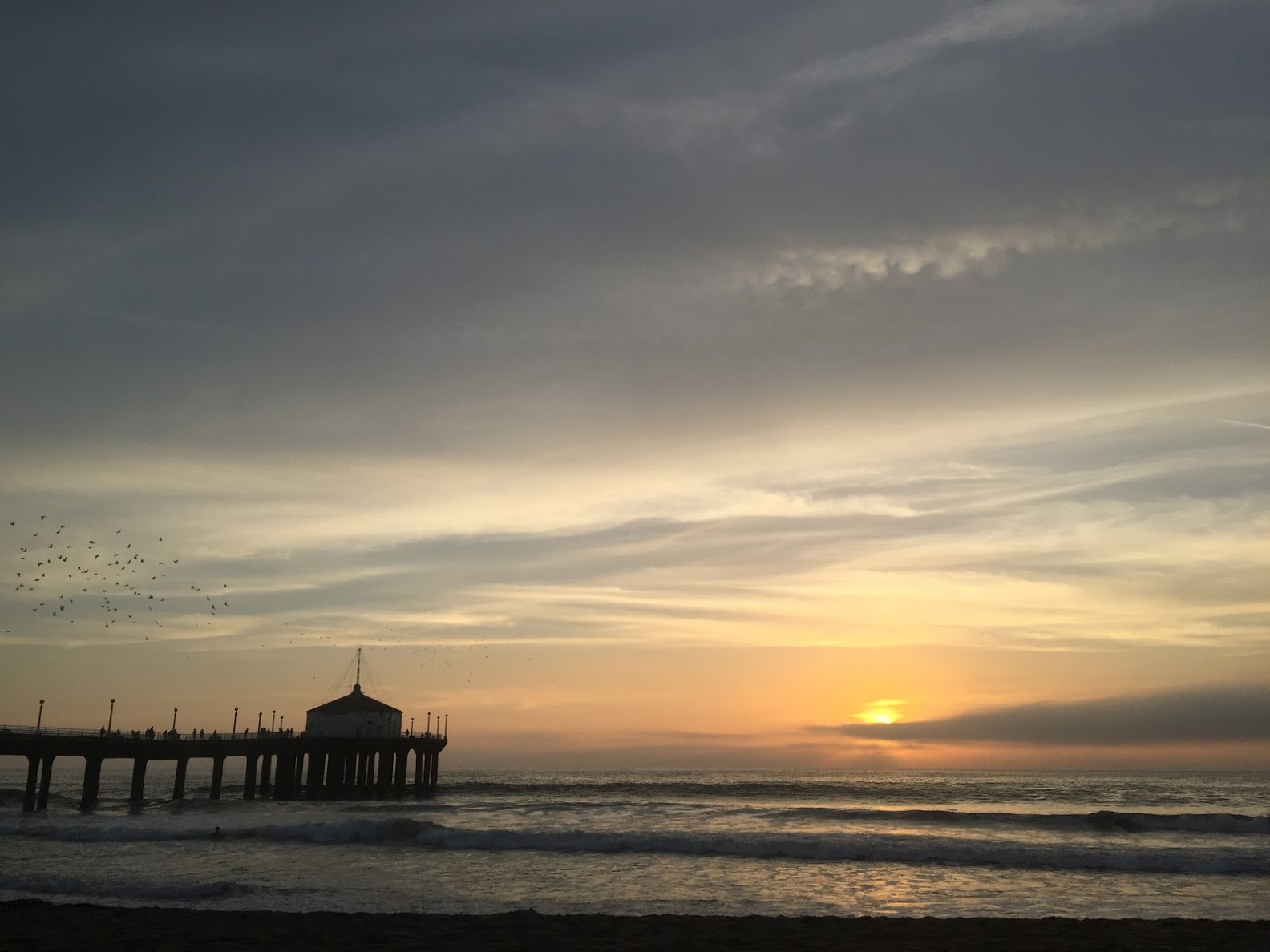 IP Alumni Spotlight: Heather Steinmeyer
IP Alumni Spotlight: Heather Steinmeyer
Managing Senior Associate General Counsel at Anthem, Inc.
You’re interested in Intellectual Property (IP) and you’ve decided you want to go to law school: now what? Law school is the first step down a pathway towards an engaging and rewarding career. However, simply choosing a law school can take a great deal of diligent research and once admitted, students may not know how to best navigate the system. But have no fear, Loyola’s Alumni Spotlight is here! This week, I spoke with Heather Steinmeyer (’90) about why she chose Loyola Law School, how she fell in love with IP, and where that intersection has taken her in her career.
Heather Steinmeyer is a Managing Senior Associate General Counsel at Anthem, Inc., where she will soon be celebrating her 10th anniversary with the company. Throughout her career, she has worked at boutique firms, general practice firms, and is now in-house at Anthem. Heather has done it all and we were delighted to speak with her about her experiences.
What was your background before you went to Loyola?
I have a Philosophy degree from undergrad. Back then I thought it had nothing to do with law, but it turned out to be a pretty good law degree because it involves analytical thinking and writing. I actually found my way into IP completely by accident and did not have a technical or science background when I did.
So then how did you get interested in IP law?
A couple of years after college, I decided that I wanted to try law school. But I thought that before I went into debt putting myself through school, that I would see if I really liked the job, so I got a job as a paralegal. The job just happened to be at an IP boutique, and over time I realized that I had fallen into an interesting area. It was the luck of the draw, I will say.
After you knew you wanted to pursue your law degree, how did you choose Loyola?
There were many reasons. I chose it because it was a good school, and they were flexible about their class hours. I was putting myself through law school and it mattered to me that I could take evening and weekend classes.
Are you glad you attended Loyola? Would you go so far as recommending it?
Yes, I would, and I am glad. I always felt like I got a good education there. I had really amusing professors. Also, I felt like I got a lot of value for my money, and that’s worth something. I came out of law school with debt, like so many people, but not as much debt as I would have had at other places. I felt like I got a good education for what I was paying.
What classes/ activities do you think are most helpful to students seeking an IP career?
Certainly learn the basics of IP, and learn the basic of patents. I was working in a patent boutique throughout law school before I switched to a general practice firm. That’s the firm that I work at as a paralegal. When I got to law school, they made me a law clerk, and I clerked my way through school. But, there I was able to draft patent applications (with a lot of help!) It wasn’t anything too complicated technically, but I got to see what practice was like. Then, I worked on a lot of patent litigation when I was in private practice. So even though you may not have a technical degree and be able to pass the patent bar, it doesn’t mean you can’t do patent litigation and learn the technology for that. Now, in-house, I supervise our outside counsel—our patent prosecution is done outside, but I supervise that work. Know the basics.
A class that I would strongly recommend would be tax—tax implications of intellectual property drive a lot of decisions. I’d also say get some litigation background, whether it’s a litigation based class, or moot court. Any type of IP: patents, trademarks, copyrights, trade secrets, can become involved in a dispute, and dispute and avoidance of risk management is a big part of what lawyers do. So, understand the dispute process, and take classes that would enable you to do that.
I have heard that it is more difficult for students to get IP jobs without a technical background. Do you agree/ disagree?
I would agree with that for certain practice settings. When I was in the market, I do think that at certain boutique firms, particularly those that were patent focused, they were focused on patent practitioners and people who were capable of passing the patent bar, having the credentials. The thinking was, quite honestly, that someone who could pass the patent bar could do trademark and copyright, but not vice versa, so they did tend to hire more people with a technical background in boutiques. But it may be less of an issue, because there are many fewer boutiques now.
I didn’t find as much of that bias in general practice firms, where I ended up going to practice when I graduated. In the general practice firms, there are certainly patent practices within IP groups, but they also have non-patent practices within IP and I found that to be a lot more fertile soil, and that’s how I got my start.
What advice do you have for someone interested in an IP career without a science background?
I would start cultivating your contacts at the general practice firms. I would ask whether the IP practice at the firm is heavily patent focused, or less heavily patent focused. I think it does still very among firms, even general practice firms. You will find that some practice environments are going to be more open to non-technical degree associates than others.
How did you get your first job after law school?
Contacts. There is no substitute for networking and trying to get to know all of the people you possibly can. I got my first job at a general practice firm because I knew someone that had been at the firm I was at who went in-house and heard through the grape vine of a job that had opened up for IP practice in a general practice firm where she happened to know the partner that was in charge of the hiring. She helped me to get my resume to that person.
Stay in touch with people that you think have connections that may be helpful to you, because those kinds of personal references are invaluable. I don’t know if I would have been interviewed in that situation if all they had seen was me on paper. You never know what contact is going to be one that is useful to you, so network, network, network!
How did you go about making all of your contacts?
I did some networking events. I was also working in the business, so that helped. While I was working at a law firm, I joined the Intellectual Property Law Association of Chicago as a student member. They have incredibly cheap student rates, and you can go to meetings and receptions, happy hours and mixers, and you can just meet people.
One thing I always suggest to people is that when you meet somebody you like and you want to stay in touch with them, get their card, and do stay in touch. Make time to reach out to them and ask if they’re willing to meet for coffee. When you network, don’t just introduce yourself and walk away. Make a connection that you can follow up on. Every practitioner I know is happy to meet with students and mentor students. I don’t know a single lawyer that doesn’t take the time to do that.
Can you describe your path to your current job?
I had changed firms once and I was a non-equity partner at a firm called Bell, Boyd & Lloyd (now K&L Gates). I had a young child and was the poster child for someone that was struggling with the proverbial “work-life balance”. One day, I got a call from a head honcho with the opportunity to go in-house. I had never really wanted to go in-house. I liked the variety of clients and the variety of issues in private practice—I did not think that being in- house would be my cup of tea. But, this particular opportunity, which was healthcare, seemed very broad. It was a trade association that had many companies as a part of it, so I thought that would generate a lot of different issues and be the best of both worlds. I found that once you’re in-house you become connected with that community. Eventually, another company that was a part of the community recruited me for a different job. That is the job I have today.
It’s all about connections, and who you know. I’ve gotten tremendous professional growth out of participating in industry professional organizations, and for me that has been a huge source of networking and contacts, and professional growth. There were times that I was at jobs where there wasn’t a lot of growth opportunity, but the professional organizations offered paths to professional development that I didn’t have, so, in a way, it supplemented my professional growth. For me, that has worked out very well.
What’s the day-to-day like as a Managing Senior Associate General Counsel at Anthem?
Over the years it has changed dramatically. I have been here for 10 years, but my job has changed a lot and I haven’t gotten bored. When I started, I was 100% intellectual property, and that was really all I did. But, I have a manager that has been very willing to promote me and expand my horizons, so now I head up a team that does shared services which includes Intellectual Property, Information Technology, Privacy and Security, Strategic Sourcing, and a few other miscellaneous areas. I’ve been given the opportunity to expand my horizons at the company and have become much more of a generalist now.
All of the areas that I’ve mentioned work in an ecosystem. A lot of our IP is generated from information technology. At a service company, a lot of what we invent are processes and software and procedures and security requirements, tools and things you can see are very tied to IT. Privacy and security drives a lot of what IT does. We’re all about making sure we secure the rights from our vendors in the intellectual property they create for us and that is strategic sourcing. So, all of these functions actually work harmoniously, and having that on one team enables us to have processes and procedures and contract templates and IP protection mechanisms that work together to make sure that we are capitalizing on all of that. There is a method to the madness of grouping the functions. I never know what any day is going to look like, and I like that about my job.
Is that your favorite part of the job?
I love it when somebody on one of our business teams brings me a project where we have a business need to accomplish X. There might be 50 different paths to get there, and they want me to help design one that is compliant and creative and meets all the business needs. I love it when we take something from the ground floor and design it. I like that collaborative design process where we’re pulling people from multiple disciplines in the company: it could be legal and tax and strategic sourcing and IT. We all have a goal and we work together to figure out what that product needs to look like to be both profitable and compliant and capable of being implemented from and IT perspective and everything else. Those are the kinds of projects that really get me going. In in-house, you’re a part of it all, and that that is what I find rewarding.
In your opinion, what do companies or law firms seek in making hiring decisions?
I think that on paper, they will be paying close attention to what school you went to. The reason I say that contacts are really helpful is because Loyola is a good school, and I think many firms respect that, but the more help you have with getting a foot in the door, the better. I absolutely believe that you can make an impression that can get you all the way, that’s what happened to me personally. I think that you can change whatever impression someone may originally have of you based on a paper by in-person contacts.
Any final advice for students interested in IP law?
If you have the opportunity stay abreast of the issues that are popping in IP law. The intersection of privacy and IP is one I would be paying close attention to, and the Supreme Court has been phenomenally busy over the last couple of years in IP and is churning out IP decisions. But, maybe even more importantly, if you have access to news letters, or periodicals that are talking about practical issues that business are dealing with in IP and cases that are being spawned by real world business experiences, knowing and following that is going to be very helpful.
I can see that being especially helpful in an interview!
Exactly. Those are the things that law firms are going to be asked by their clients to help them with, and those are the things that companies are going to be facing and dealing with right now. Having a sense of what the issues are is helpful when you do get that foot in the door and you get a chance to talk to somebody. You can show that you are staying up to date with what matters right now in IP, and that is important.
Interviewed by: Maria Black, Juris Doctor Candidate, May 2020
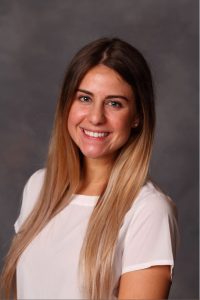

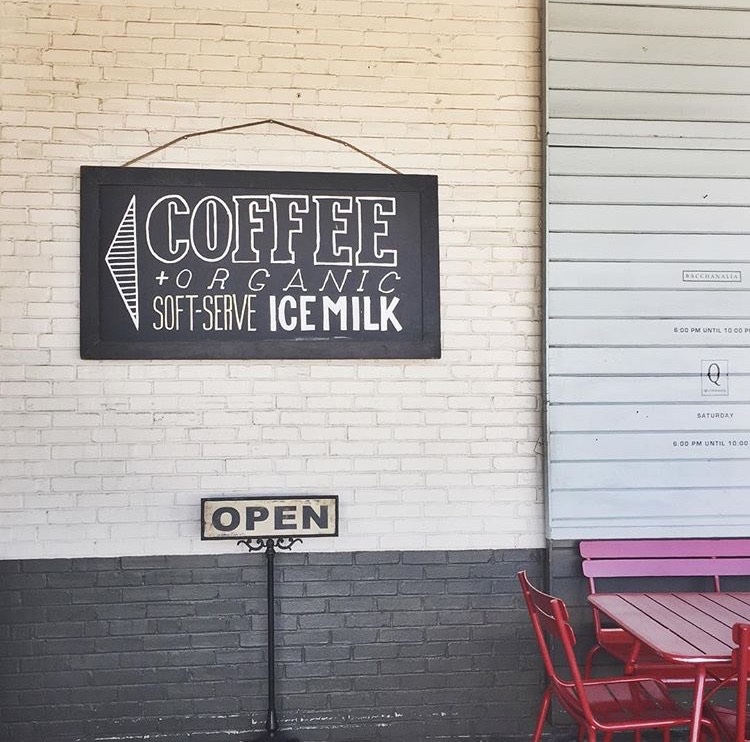

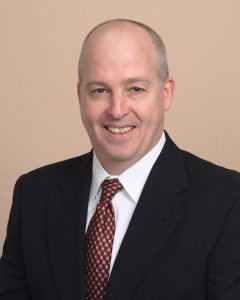
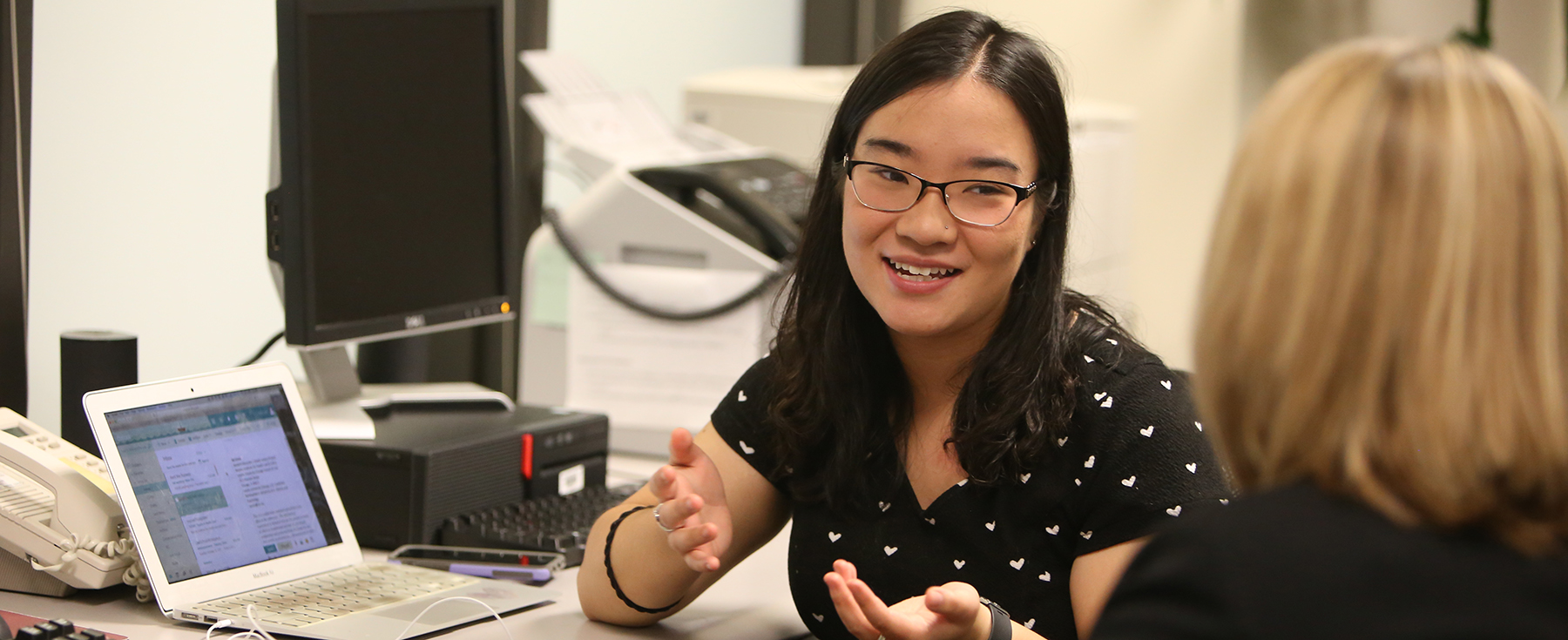 Sei Unno, a 2L at Loyola with undergraduate majors in history and psychology, enrolled this past fall in the School of Law’s nationally recognized Health Justice Project to gain practical training as a student clinician and to help those in need. The Health Justice Project, one of Loyola’s six in-house legal clinics, is an interdisciplinary medical-legal partnership that works to identify and resolve the social and legal issues that negatively affect the health and well-being of vulnerable populations.
Sei Unno, a 2L at Loyola with undergraduate majors in history and psychology, enrolled this past fall in the School of Law’s nationally recognized Health Justice Project to gain practical training as a student clinician and to help those in need. The Health Justice Project, one of Loyola’s six in-house legal clinics, is an interdisciplinary medical-legal partnership that works to identify and resolve the social and legal issues that negatively affect the health and well-being of vulnerable populations. Intellectual Property (IP) is a growing field that encompasses a wide range of fields including patents, copyright, trademarks, privacy, and technology. We spoke with Gregory Leighton (JD ’06) who is currently a
Intellectual Property (IP) is a growing field that encompasses a wide range of fields including patents, copyright, trademarks, privacy, and technology. We spoke with Gregory Leighton (JD ’06) who is currently a 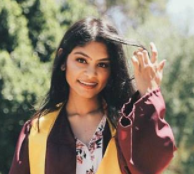

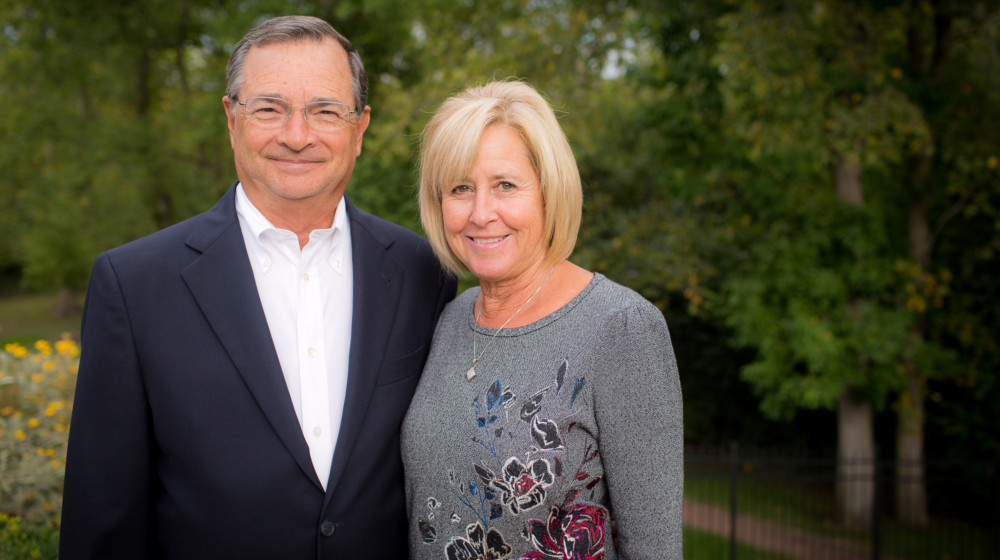
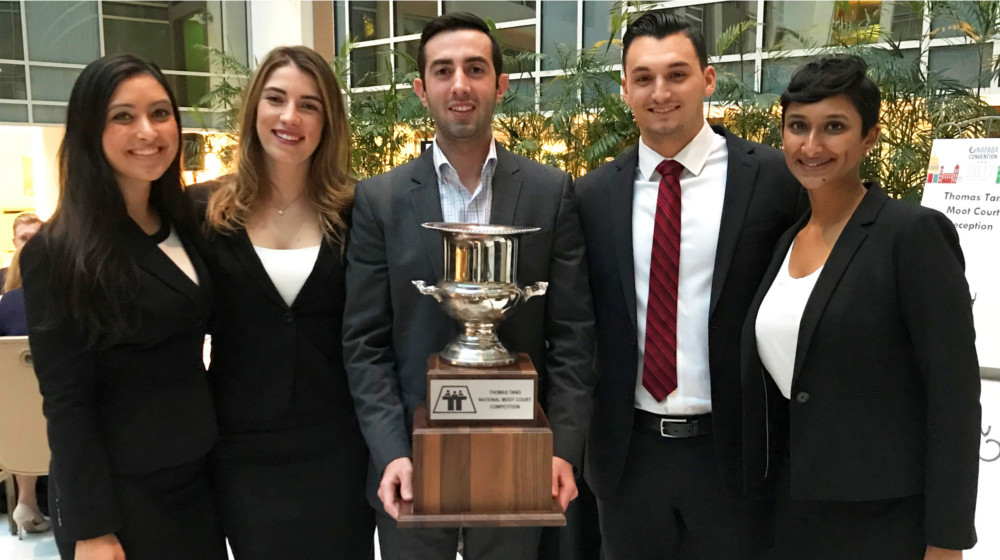 Loyola won the Thomas Tang National Moot Court Competition held in Washington, DC, November 3-4. Loyola also won Best Brief and Best Oralist Awards. The competition is sponsored by the National Asian Pacific American Bar Association Law Foundation. Congratulations to Emily Olivera, Jasmine Stanzick, Sevan Avakian (coach), Lucas Terna, and Sowmya Sastri. Not pictured: Coaches Kristen Kawaguchi and Ann Shea.
Loyola won the Thomas Tang National Moot Court Competition held in Washington, DC, November 3-4. Loyola also won Best Brief and Best Oralist Awards. The competition is sponsored by the National Asian Pacific American Bar Association Law Foundation. Congratulations to Emily Olivera, Jasmine Stanzick, Sevan Avakian (coach), Lucas Terna, and Sowmya Sastri. Not pictured: Coaches Kristen Kawaguchi and Ann Shea.